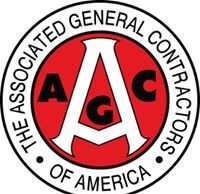
Pursuing a career in real estate can be an exciting and rewarding journey, but it begins with obtaining a real estate license. The process may seem daunting, but fear not! In this step-by-step guide, we will walk you through the entire process of obtaining a real estate license in the United States, offering insights and tips to help you succeed. Whether you are a recent high school graduate or considering a career change, this comprehensive guide will provide you with the knowledge and confidence you need to embark on a successful career in the dynamic world of real estate.
Step 1: Determine Eligibility Requirements
Before embarking on your journey to becoming a real estate agent, it is crucial to understand and meet your state’s eligibility requirements. Typically, states require candidates to be at least 18 years old, possess a high school diploma or equivalent, and, in some cases, be a U.S. citizen or legal resident. The eligibility criteria can also extend to your criminal record. Take the time to thoroughly research your state’s specific criteria to ensure you meet the necessary qualifications.
Step 2: Enroll in a Pre-Licensing Education Program
Once you’ve confirmed your eligibility, enrolling in a state-approved pre-licensing education program, like the best real estate online courses in Texas, is next. This educational foundation is essential for aspiring real estate agents, as it equips you with the knowledge and skills required to succeed in the real estate industry. Pre-licensing education programs are comprehensive and cover a broad spectrum of topics essential to real estate, including real estate law, contracts and agreements, property management, ethics and professional conduct and real estate finance and investments.
The duration of these programs varies by state but generally ranges from 60 to 180 hours of coursework. Choosing the right educational institution is vital. Look for schools or programs accredited by your state’s real estate commission to ensure that you meet the specific academic requirements set forth by your state. Selecting a program that aligns with your learning style and schedule is essential as this educational foundation is a cornerstone of your future success as a real estate professional.
Step 3: Pass a Background Check
Most states require aspiring real estate agents to undergo a background check as part of the real estate licensing process. The primary objective of this check is to verify that you maintain a clean criminal record. While minor infractions may not automatically disqualify you, it is imperative to understand that certain convictions, particularly felonies, can significantly hinder your progress in obtaining a real estate license.
You must provide information regarding your criminal history during the background check. It’s essential to be completely transparent and forthright in this process. Some states may consider the nature and timing of convictions and make exceptions for minor offenses. To navigate this step successfully, consult your state’s real estate commission for specific guidance on how your background check may affect your eligibility.
Step 4: Ace the State Licensing Exam
After completing your pre-licensing education, you must prepare for and pass the state licensing exam. It consists of a national portion covering fundamental real estate concepts and a state-specific portion focusing on your state’s unique real estate laws and regulations. Study materials provided during your pre-licensing education will be valuable resources for your exam preparation. Many aspiring agents also opt to enroll in exam prep courses or utilize study guides to enhance their chances of success. The state licensing exam is a comprehensive test of your knowledge and readiness to serve as a real estate professional, so thorough preparation is essential.
Step 5: Submit Your License Application
Once you have passed the state licensing exam, you must submit your license application to your state’s real estate commission. You must provide several documents during the application process, including proof of completing your pre-licensing education and passing the state exam. Additionally, you’ll need to pay application and licensing fees. Some states may have specific requirements, such as fingerprinting or additional coursework, which you must fulfill. Completing the application process accurately and promptly is essential to expedite your licensing journey.
Step 6: Engage in Continuing Education and Renew Your License
After obtaining your real estate license, your learning journey continues. Most states require real estate agents to complete continuing education courses to stay updated on industry developments, laws, and regulations. This ongoing education is crucial to maintain your knowledge and professional standing. Continuing education requirements vary by state, so it is essential to understand and fulfill these obligations promptly.
Staying informed about changes in the industry and the legal landscape is vital to providing excellent service to your clients and ensuring your long-term success as a real estate professional. Furthermore, depending on your state’s regulations, you must renew your real estate license regularly. License renewal involves paying renewal fees and, in some cases, completing additional continuing education courses. Staying compliant and informed is vital to keeping your real estate career on track and maintaining your active license.
Conclusion
Becoming a licensed real estate agent in the United States is an attainable goal with careful planning and dedication. Each step in the process is essential for building a solid foundation for your real estate career. As you embark on this journey, remember that obtaining a real estate license is just the beginning. Ongoing education and compliance with state regulations are vital to thriving in this dynamic industry. Keep your sights on your career goals, stay committed to learning and growing, and you’ll find yourself well on the path.

















